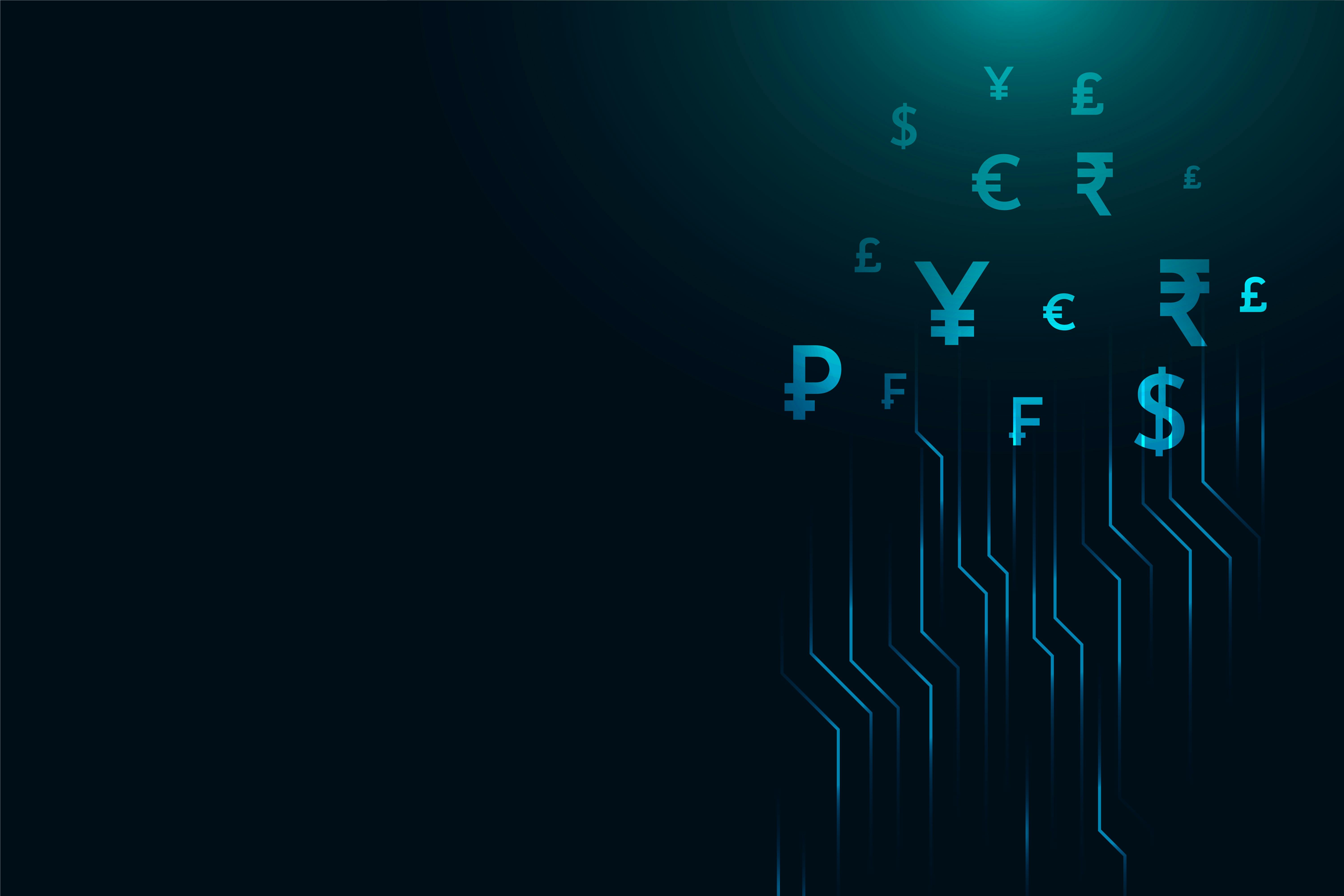More than one billion people in the world are unbanked or underbanked, thus outside the umbrella of essential financial services. Gluwa, a San Francisco-headquartered fintech company and brainchild of Tae Oh, is tackling the gap directly through the establishment of a borderless financial ecosystem. Its end goal is to “create a blockchain ecosystem that can serve billions of people around the globe,” leveraging the “permissionless, borderless” nature that lies in the very essence of cryptocurrency tech itself. Gluwa platforms link global investors and digital asset instruments with users in developing markets, utilizing blockchain tech itself to securely record loans, payments, and credit history, even for users without traditional checking accounts. Through “connecting users all around the world with our borderless financial technology,” Gluwa helps serve the underserved build credit on-chain and gain access to low-cost loans.
A Borderless Financial Mission
Traditional banks work within local jurisdictions, often excluding borrowers in emerging economies. In contrast, Gluwa’s permissionless blockchain network has no single point of control, enabling cross-border transactions and lending. The company’s partnership with Aella, a Nigerian microfinance app with over 2 million users, is a flagship example: loans made through Aella are tokenized as blockchain-based stablecoins pegged 1:1 to the local currency. These loans and repayments are recorded on Gluwa’s Creditcoin blockchain, creating immutable on-chain credit scores for borrowers. For instance, a young Nigerian farmer received a microloan via Aella that was logged on Creditcoin, allowing him to establish a verifiable credit history and expand his business. Similarly, when an engineer struggled during the pandemic, his on-chain credit reputation helped him secure flexible relief loans from the same network.
n These stories of success demonstrate the way in which Gluwa is empowering the unbanked. By recording regular repayments, from the cost of utilities or small loans, on an immutable ledger, Gluwa gives borrowers what might be described as “reputational capital” that is available to traditional banking establishments. In recent years, Gluwa’s use-case driven blockchain has stored in excess of5 million actual credit transactions and has benefited hundreds of thousands of people in rapidly growing markets. (In Nigeria alone, Gluwa’s programs have had a beneficial effect on roughly 2 million people who otherwise had no access to formal funds.) As described in one Gluwa executive’s words, “Without easy access to credit, it isn’t simple to grow and develop an economy”, and the solutions provided by Gluwa work towards resolving this problem through connecting global funds to local borrowers.
Cryptocurrency to Conventional Finance
Gluwa’s model actually bridges digital money and physical economies. All of Gluwa’s loan products use stablecoins that mirror local fiat currencies, so borrowers receive cryptocurrency in a 1:1 exchange for their local currency. On the receiving end, Gluwa interacts with local partners to turn crypto into cash or digital spending power, even in cash-based markets: e.g., it interacts with credit card providers so that farmers can spend digital loan funds without an ATM. Meanwhile, all payments, even if made in digital currency, get publicly recorded in the Creditcoin ledger, establishing a recordable credit history. This model essentially bridges the gap between crypto and traditional finance: Western fintech firms may lend to nations due to the fact that every debtor’s blockchain credit score is publicly available without borders.
Gluwa also collaborates directly with governments to intertwine crypto tools within established finance. It is an official technology partner for the CBN’s eNaira CBDC project in Nigeria, for instance. With this initiative, Gluwa intends to connect its Credal blockchain API with the eNaira system, such that eNaira transactions (loans and payments) automatically create credit information on-chain. As such, millions of otherwise unbanked Nigerians will obtain verifiable credit identities when utilizing their nation’s digital currency, and in turn make the eNaira “a trusted and meaningful currency” for daily users. Comparable projects are in progress in Ghana and Liberia: Gluwa has consulted Ghana’s future CBDC, and in Liberia, its CEO, Tae Oh, met the President with the intention to explore an eCedi on blockchains and connectivity enhancements. These projects illustrate how Gluwa is applying crypto innovation to practical, real-world finance, at the governmental level, with the ultimate goal of “financial inclusion becoming universal” on multiple continents.
Most Significant Ways Gluwa Bridges Crypto and Traditional Finance:
- On-chain Credit Histories: Creditcoin irreversibly holds loans and their corresponding repayments, thereby providing unbanked borrowers with a “credit score” visible to all lenders. This makes trust transferable: the credit history of the borrower accompanies them from lender to lender, thereby creating a worldwide credit bureau for the unbanked.
- Stablecoin Loans: Gluwa provides stability of value in loans in the form of balancing digital money with local currency at a 1:1 ratio. Nigerian lenders, for instance, are lent cryptocurrency based on the Naira’s value, and they spend it locally or exchange it via partner networks in a smooth integration between the two worlds of cryptocurrency and fiat.
- CBDC Integration: Gluwa’s Credal API is made to interface with Central Bank Digital Currencies. Gluwa will log CBDC transactions on Creditcoin to produce national credit profiles in Nigeria’s eNaira program. Having central bank relationships allows Gluwa’s blockchain to bring even state-issued money blockchain security and transparency.
-
Non-Custodial Wallets: Gluwa’s apps (for instance, the Gluwa Invest app and wallet) allow users to have their own crypto “stablecoins” and invest in loans. Most importantly, these are non-custodial, so members are always in possession of their private keys. By putting essential wallet utilities into the hands of millions (for instance, through Gluwa’s integration into Aella’s smartphone banking app), Gluwa brings fintech to individuals who never had banking.
-
Connectivity Solutions: As some of the target users lack internet connectivity, Gluwa is targeting the digital divide itself. It has even suggested and created satellite-based internet service providers for rural populations. Such satellites not only increase total internet coverage, but specifically facilitate Gluwa’s financial services; enabling people to utilize their crypto wallets as well as their CBDCs even in offline mode.
Real World Effects and the Gluwa Ecosystem
The results to date are remarkable. Gluwa’s end-to-end ecosystem, the Gluwa Invest platform, the Creditcoin blockchain, and linked APIs, has already facilitated millions of loans. Gluwa’s own metrics have its network exceeding 5 million credit exchanges (loan disbursement and repayment of loan) for over $80 million, servicing approximately 337,000 borrowers and investors across emerging markets. Each transaction was facilitated by investors at each corner of the world and supported by technology on Microsoft Azure. One real-life application is in 2022, when the government of Lagos, Nigeria partnered with Gluwa to tokenize plots of agricultural land as NFTs, essentially offering Nigerian farmers for the first time on-chain, asset-backed loans. Practically, farmers no longer need to hold title deeds in a physical location; instead, one can utilize a record on the blockchain in order to be capable of accessing foreign lenders’ capital.
Gluwa’s ecosystem is also evolving very rapidly. The Creditcoin blockchain has recently announced a $10 million developers’ fund to build further real-world use cases and is moving to become Ethereum-compatible in order to be capable of hosting more decentralized applications. Gluwa’s “Credal” API is now starting to be the open rails on which any fintech lender (whether in Asia, Africa or elsewhere) can tap into this decentralized credit network. That is, Gluwa provides an end-to-end solution: from user wallets (for savings and stablecoin investments) to blockchain infrastructure (for loans and credit data) to government infrastructure (for CBDCs and regulation). By layering all these layers on top of each other, Gluwa operates global finance as if it were an integrated system, not these markets that become siloed locally.
The social impact of the ecosystem is no less impressive. Borrowers who had never seen a bank now have thriving on-chain reputations. One Nigerian borrower accumulated sufficient on-chain credit to take out multiple small loans to diversify his cow-rearing business. Another endured a financial crisis because on-chain history persuaded lenders to give a reprieve. In both instances, Gluwa’s blockchain performed something that conventional financial institutions are not capable of doing: converting implicit trust into explicit form, facilitating new lending relationships across borders. Consequently, Gluwa technology has begun to make “the world’s invisible $2 trillion economy visible,” in the words of one analyst, Creditcoin is onboarding millions of underrepresented individuals into the world economy.
Charting a Course for Inclusivity
Gluwa’s mission continues unabated. The company is actively building more partnerships across Africa, Asia, and beyond. After its activities in Ghana and Nigeria, it is exploring deals with Liberian mobile-money infrastructure, exploring talks for collaborations with several nations in West Africa, and even breaking into Southeast Asia. Meanwhile, Gluwa is also improving its features to support more and more users: the upcoming satellite constellation will increase connectivity, while the upcoming integrations (like hardware wallet support and multichain smart contracts) will make it possible for Gluwa to cover more users, potentially billions of users.
In essence, Gluwa stands at the intersection of crypto and traditional finance. By bridging blockchain innovations with the real-world needs of emerging economies, it is helping to write a new chapter in financial inclusion. Through creditworthy loans for farmers, transparent histories for gig workers, CBDC partnerships with central banks, and even space‑based internet, Gluwa’s borderless platform is enabling “financial tools, information and accessibility” for people who need them. In doing so, Gluwa is living up to its mantra of a “Sound Currency for Everyone”, transforming crypto technology into a tangible economic opportunity for the global underbanked.










